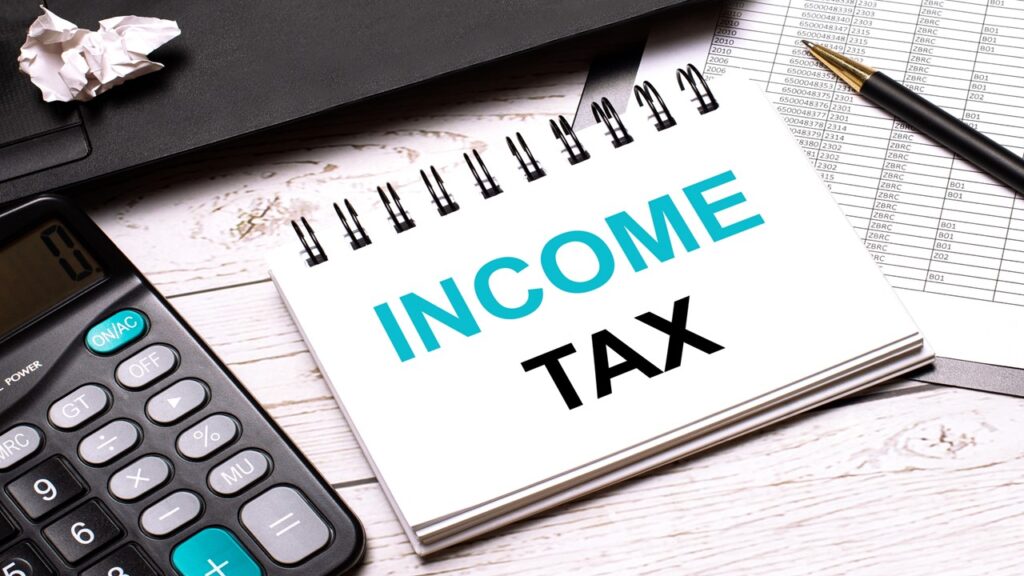
Benefits of Annual Tax Return
Filing an annual income tax return as a salaried person in Pakistan can offer several benefits, including:
- Compliance with the law: Filing an income tax return is a legal requirement in Pakistan for salaried persons earning above a certain threshold. Filing your return can help you avoid penalties and legal issues.
- Claiming tax credits: By filing an income tax return, you can claim tax credits for various expenses, including medical expenses, charitable donations, and retirement contributions. These tax credits can help reduce your tax liability and save you money.
- Establishing creditworthiness: Some financial institutions may require individuals to provide proof of income tax filing when applying for loans or other financial products. Filing your income tax return can help establish your creditworthiness and make it easier to secure financing.
- Applying for visas: Some countries require individuals to provide evidence of their tax compliance when applying for visas or immigration. Filing your income tax return can help ensure that you are able to provide the necessary documentation for these applications.
- Building a financial record: By filing an income tax return every year, you can build a financial record that demonstrates your income and expenses over time. This record can be useful in future financial planning and investment decisions.
تنخواہ دار شخص کے لیے سالانہ انکم ٹیکس فائلنگ کیوں ضروری ہے۔
تنخواہ دار افراد کے لیے، کئی وجوہات کی بنا پر سالانہ انکم ٹیکس ریٹرن فائل کرنا ضروری ہے۔ تنخواہ دار افراد کے لیے سالانہ انکم ٹیکس جمع کرانے کی اہم وجوہات یہ ہیں
:قانونی تقاضے
بہت سے ممالک میں، بشمول ریاستہائے متحدہ، ہندوستان، اور بہت سے دوسرے، ایک مخصوص حد سے زیادہ آمدنی والے افراد کو سالانہ انکم ٹیکس ریٹرن فائل کرنے کے لیے قانون کے مطابق ضرورت ہوتی ہے۔ اس تقاضے کی تعمیل کرنے میں ناکامی کے نتیجے میں جرمانے اور قانونی نتائج ہو سکتے ہیں۔
:آمدنی کی رپورٹنگ
ٹیکس ریٹرن فائل کرنا تنخواہ دار افراد کو اپنی کل آمدنی کی اطلاع دینے کی اجازت دیتا ہے، بشمول تنخواہ، بونس، مراعات، اور کسی دوسرے ذرائع سے حاصل ہونے والی آمدنی۔ یہ ٹیکس حکام کو ان کی مالی صورتحال کا ایک جامع جائزہ فراہم کرتا ہے۔
:ٹیکس کی ذمہ داری کا حساب کتاب
ٹیکس ریٹرن وہ بنیادی ذریعہ ہے جس کے ذریعے ٹیکس حکام کسی فرد کی ٹیکس ذمہ داری کا حساب لگاتے ہیں۔ یہ واجب الادا ٹیکس کی حتمی رقم کا تعین کرنے کے لیے کل آمدنی، قابل اجازت کٹوتیوں، چھوٹ، اور قابل اطلاق ٹیکس کی شرحوں کو مدنظر رکھتا ہے۔
:کٹوتیوں اور چھوٹ کا دعوی کرنا
تنخواہ دار افراد اپنی قابل ٹیکس آمدنی کو کم کرنے کے لیے مختلف کٹوتیوں اور چھوٹ کا دعویٰ کر سکتے ہیں۔ ان میں سرمایہ کاری، اخراجات جیسے میڈیکل انشورنس پریمیم، پراویڈنٹ فنڈز میں شراکت، اور دیگر اہل اخراجات شامل ہو سکتے ہیں۔ ٹیکس ریٹرن فائل کرنا افراد کو ان فوائد سے فائدہ اٹھانے کی اجازت دیتا ہے۔
:رقم کی واپسی کی اہلیت
ہو سکتا ہے کہ کچھ افراد نے سال بھر میں اپنی تنخواہ سے اضافی ٹیکس کاٹ لیا ہو۔ ٹیکس ریٹرن فائل کرنا انہیں اس قابل بناتا ہے کہ وہ زائد ادائیگی شدہ ٹیکسوں کی واپسی کا دعویٰ کر سکیں۔ یہ خاص طور پر متعلقہ ہے اگر ان کے پاس اہل کٹوتیاں ہیں جن پر باقاعدہ تنخواہ کی کٹوتیوں میں غور نہیں کیا گیا تھا۔

:ٹیکس قوانین کی تعمیل
سالانہ انکم ٹیکس ریٹرن فائل کرنا اس بات کو یقینی بناتا ہے کہ تنخواہ دار افراد ٹیکس قوانین اور ضوابط کی تعمیل کرتے ہیں۔ یہ مالیاتی شفافیت اور قائم کردہ ٹیکس فریم ورک کی پاسداری کا مظاہرہ ہے۔
:سزاؤں سے بچنا
انکم ٹیکس ریٹرن کا بروقت فائل کرنا بہت ضروری ہے تاکہ ٹیکس حکام کی طرف سے دیر سے یا نان فائل کرنے پر عائد جرمانے اور سود کے الزامات سے بچ سکیں۔ مالیاتی اثرات کو روکنے کے لیے ٹیکس کی آخری تاریخ پر عمل کرنا ضروری ہے۔
:ساکھ کی اہلیت
کچھ مالیاتی اداروں کو انکم ٹیکس ریٹرن فائل کرنے کا ثبوت درکار ہو سکتا ہے جب لوگ قرض یا کریڈٹ کارڈ کے لیے درخواست دیتے ہیں۔ ٹیکس گوشوارے جمع کروانا مالی اعتبار کو قائم کرنے میں مدد کرتا ہے اور ساکھ کی اہلیت پر مثبت اثر ڈال سکتا ہے۔
:مالیاتی لین دین کے لیے دستاویزات
انکم ٹیکس ریٹرن مختلف مالیاتی لین دین کے لیے ایک اہم دستاویز کے طور پر کام کرتا ہے۔ آمدنی اور ٹیکس کی تعمیل کا ثبوت فراہم کرنے کے لیے ویزا، قرضوں، یا بعض کاروباری لین دین کے دوران درخواست دیتے وقت اس کی ضرورت پڑ سکتی ہے۔
:حکومتی پروگرام اور فوائد
بعض سرکاری پروگراموں اور فوائد حاصل کرنے کے لیے ٹیکس ریٹرن فائل کرنا اکثر شرط ہے۔ یہ سماجی تحفظ کے فوائد، سبسڈی والے مکانات، اور تعلیمی قرضوں جیسے پروگراموں کے لیے فرد کی اہلیت کو قائم کرتا ہے۔
Annual Income Tax Filing (Salaried Person)Income Tax Return Filing (AOPs, Partnership Firm)
Income Tax Return Filing (Pvt. Ltd. Company)
Income Tax Return Filing (Teacher)
Overall, filing an income tax return can offer several benefits for salaried persons in Pakistan. It is important to consult with a qualified tax professional to ensure that you are complying with all relevant regulations and taking full advantage of all available tax benefits.
Annual Tax Return File
In Pakistan, every salaried person is required to file an annual income tax return with the Federal Board of Revenue (FBR) by September 30th of each year. This return must include information about the individual’s income, expenses, and deductions for the previous tax year, which runs from July 1st to June 30th.
The process for filing an annual income tax return for salaried persons typically involves the following steps:
- Gather relevant documents: Before filing your return, you should gather all relevant documents, including your salary slips, bank statements, and receipts for any deductible expenses.
- Calculate your income: Determine your total income for the year, including your salary, bonuses, and any other income sources.
- Claim deductions: Identify any expenses that are tax-deductible, such as medical expenses, charitable donations, and retirement contributions.
- File your return: Use the FBR’s online portal to file your return and pay any tax owed. You may also choose to file a paper return by visiting your local tax office.
- Verify your return: After submitting your return, you will receive an acknowledgement receipt. You should check this receipt to ensure that your return has been accepted and any taxes owed have been paid.
Failure to file an annual income tax return or pay any taxes owed can result in penalties and fines. It is important for salaried individuals to ensure that they file their returns and pay their taxes on time to avoid any legal or financial issues.
NTN Salaried Person Business Partnership/AOPs Non-Profit Organization (NPO) Pvt Ltd. Co.
IPO Patent Registration Trademark Registration Copyright Registration
Income Tax SROs Sales Tax SROs
It is recommended that salaried individuals consult with a qualified tax professional to ensure that they are complying with all relevant regulations and are taking full advantage of all available tax benefits.
Important Features
Some important features of annual income tax filing for salaried persons are:
- Deadline: The deadline for filing income tax returns for salaried persons is usually July 31st of the assessment year, which is the year immediately following the financial year for which the tax return is being filed.
- Income sources: Salaried persons need to report their income from all sources, including salary income, income from house property, capital gains, and income from other sources.
- Deductions and exemptions: Salaried persons are eligible for various deductions and exemptions, such as the standard deduction, deductions for investments under Section 80C, medical insurance premium under Section 80D, and interest on home loan under Section 24. These can help reduce the taxable income and the tax liability.
- TDS: Salaried persons also need to report their TDS (Tax Deducted at Source) on their income, which is the tax that has already been deducted from their salary by the employer. If the TDS is higher than the actual tax liability, the person may be eligible for a refund.
- Filing options: Salaried persons can file their income tax returns either manually or online. E-filing is the most convenient and popular option, as it allows for faster processing and fewer errors.
- Penalty for non-compliance: Failing to file income tax returns or under-reporting income can result in penalties, interest charges, and legal action by the tax authorities. Therefore, it’s important for salaried persons to file their returns accurately and on time.
Penalty of late Annual Income Tax Filing
If a salaried person fails to file their income tax return by the due date, they may be subject to penalties and interest charges. The penalty for late filing of income tax returns can vary depending on the following factors:
- Time of filing: If the income tax return is filed after the due date but before December 31st of the assessment year, the penalty is Rs. 5,000. If the return is filed after December 31st, the penalty amount increases to Rs. 10,000.
- Income tax liability: If the person’s total income for the financial year is less than Rs. 5 lakh, the penalty for late filing is capped at Rs. 1,000. However, if the person’s total income is more than Rs. 5 lakh, the penalty can be up to Rs. 10,000.
- Revised return: If the person files a revised return after the due date, the penalty can be up to Rs. 10,000.
In addition to the above penalties, the person may also be liable to pay interest on any outstanding tax amount that was not paid by the due date.
It’s important for salaried persons to file their income tax returns on time to avoid these penalties and interest charges.
